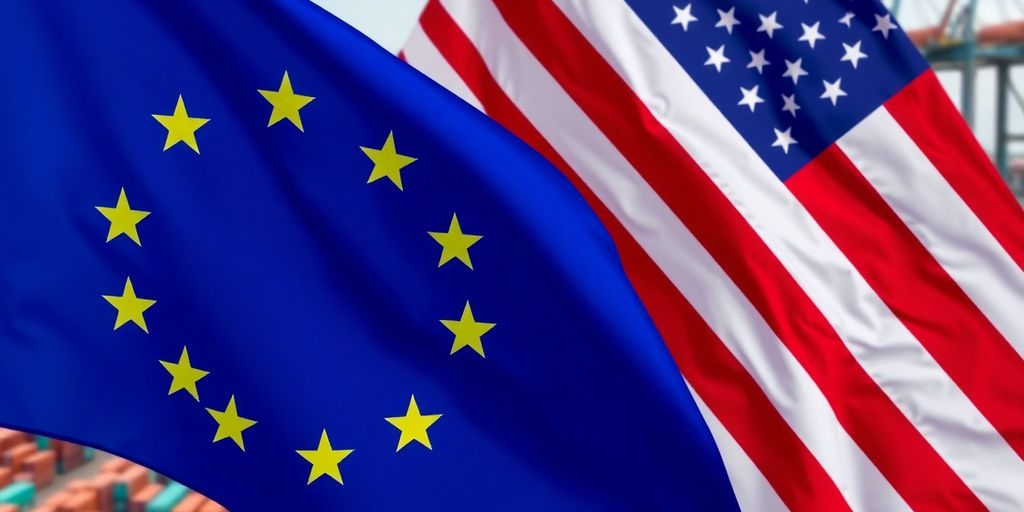Business
Trump Postpones EU Tariff Increase Amid Intensifying Trade Tensions

In a surprising turn of events, President Donald Trump announced a delay in the planned tariff hike on European goods, a move that comes as tensions escalate in the ongoing trade war between the United States and various global partners. This decision aims to ease some of the economic pressures faced by American consumers and businesses, while also attempting to navigate the complex landscape of international trade relations.
Key Takeaways
- Trump delays the EU tariff hike originally set for next month.
- The decision is seen as a strategic move to mitigate trade tensions.
- Ongoing trade disputes with China continue to affect global markets.
Background on Tariff Policies
Tariffs have been a central theme in Trump’s economic policy, aimed at protecting American industries from foreign competition. The proposed tariffs on European goods were part of a broader strategy to address trade imbalances and retaliate against what the administration deemed unfair trade practices.
- Initial Tariff Plans:
- The tariffs were set to target a range of products, including luxury goods and agricultural products.
- The increase was expected to impact both American consumers and European exporters significantly.
Reasons for the Delay
The decision to postpone the tariff hike appears to be influenced by several factors:
- Economic Concerns:
- Political Considerations:
- Global Trade Dynamics:
Implications for U.S.-EU Relations
The postponement of the tariff increase could have several implications for U.S.-EU relations:
- Potential for Negotiations:
- This delay may open the door for renewed negotiations between the U.S. and EU, potentially leading to a more amicable trade relationship.
- Market Reactions:
- Financial markets reacted positively to the news, with stocks rising as investors welcomed the prospect of reduced trade tensions.
Conclusion
Trump’s decision to delay the EU tariff hike reflects a complex interplay of economic, political, and global factors. As the trade war continues to evolve, the administration’s approach will likely remain fluid, with potential impacts on both domestic and international markets. The coming weeks will be crucial in determining how these trade relationships develop and what further actions may be taken by the U.S. government.
-

 Press Release7 days ago
Press Release7 days agoCrypto WINNAZ Launches First On-Chain Yield Engine for Meme Coins, Enabling 20x–300x Returns
-

 Press Release4 days ago
Press Release4 days agoBellarium ($BEL) Price Prediction: Could It Hit $5 by 2026?
-

 Press Release2 days ago
Press Release2 days agoClinical Trials Market Set for Robust Growth, Driven by Drug Development Surge and Digital Innovation
-

 Press Release2 days ago
Press Release2 days agoPreventive Vaccines Market to Witness Strong Growth by 2035
-

 Business3 days ago
Business3 days agoHow Managed IT Solutions Help Small Teams Compete at Enterprise Scale
-

 Press Release2 days ago
Press Release2 days agoGreen Bio Chemicals Market Poised for Sustainable Growth amidst Global Shift to Eco-Friendly Alternatives by 2035
-

 Press Release2 days ago
Press Release2 days agoFill-Finish Pharmaceutical Contract Manufacturing Market Expected to Flourish Amid Biopharmaceutical Boom and Global Outsourcing Trend by 2035
-

 Press Release2 days ago
Press Release2 days agoIndustrial Boiler Market Expected to Surpass USD 24.4 Billion by 2035 Amid Growing Demand for Energy Efficiency and Industrialization










